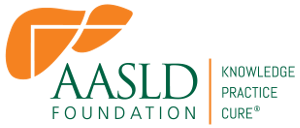RESEARCH AWARDS GLOSSARY
RESEARCH AWARDS GLOSSARY
Advanced Spending: Authorization to expend Award funds on a project prior to the award start date. Advanced spending is not allowed on AASLD Foundation Awards.
Allowable Costs: Costs that may be charged to an Award. Allowable costs for Foundation programs are included in their respective RFAs.
Award Period (or Award Term): the period of the Award; it includes the start date and the end date of the Award.
Basic Research: Systematic study directed toward greater knowledge or understanding of the fundamental aspects of phenomena and of observable facts without specific applications towards processes or products in mind.
Clinical Research: Studies related to patients or disease processes having direct contact between the principal investigator and humans. Clinical research includes epidemiology and clinical trials in liver disease.
Collaborator: An individual who works with the principal investigator in the scientific development or execution of the project. This individual would typically devote a specific percent of effort to the project and would be identified as key personnel. The collaborator may be employed by or affiliated with either the sponsoring institution or an organization participating in the project under a consortium or contractual agreement.
Direct Costs: Costs that can be specifically attributed to the Research Project. Must be reasonable, easily identifiable, and allocable to the project.
Effort: The amount of time an individual expends on a project. If a minimum percent of an awardee’s effort is required for an Award, the amount will be indicated in the “Eligibility Requirements” section of the RFA.
Equipment: Items which have a primary function related to the Research Project and will ordinarily have a usable life expectancy of over one year, costing $100 or more. See Capital Equipment, General Purpose Equipment, and Special Purpose Equipment definitions below for additional allowable costs guidelines.
- Capital Equipment is items that cost $5,000 or greater, have a useful life of more than one year, and will not be expended or consumed in research. This type of equipment is not an allowable cost under all AASLD Foundation Awards EXCEPT for the Pilot Research Award, and only then if prior written approval is granted by AASLD Foundation.
- General Purpose Equipment is equipment that is not limited to research, medical, scientific, or other technical activities (e.g., office equipment, office furnishings, and computers). This equipment type is considered an indirect cost under AASLD Foundation Awards and is not an allowable cost.
- Special Purpose Equipment is equipment that is used only for research, medical, scientific, or other technical activities. This equipment is generally allowable under AASLD Foundation Awards, if it does not meet the threshold to be considered Capital Equipment.
Facilities and Administrative (F&A) Costs (or Indirect Costs). Also referred to as overhead or administrative costs. Costs that are necessary to support a particular activity project or program but that cannot be easily or directly attributed to such activity, project or program (e.g., rent, utilities, and administrative personnel). F&A is not allowable under any AASLD Foundation Award.
F&A Rate: Approved rate for reimbursement of facilities and administrative costs on sponsored projects. AASLD Foundation’s F&A rate is 0% - reimbursement for facilities and administrative costs is not allowed under any Foundation award.
Fiscal Officer: The institutional official responsible for the expenditures reports and financial administration of the Award.
Fringe Benefits: Employee benefits paid by the employer; part of an individual’s salary and wages. AASLD Foundation considers fringe benefits that are applicable to direct salaries and wages as direct costs.
Grant Administrator: The staff member who oversees new grant agreements and grant payments; ensure that grants comply with relevant laws and regulations; guarantees that all required reports are submitted; and administers the grant after award.
IACUC (Animal Care and Use Committee). Institutional committee that reviews and approves the use of animal subjects in all research projects and oversees institutional animal facilities.
Indirect Costs (or F&A Costs): Also referred to as overhead or administrative costs. Costs that are necessary to support a particular activity project or program but that cannot be easily or directly attributed to such activity, project or program. Examples of indirect costs are rent, utilities, and administrative personnel. Indirect costs are not allowable expenses under any AASLD Foundation Award.
Institution (or Sponsoring Institution): The entity (university, medical center, hospital, research institute or any other organization) in which the work and/or training will be conducted.
Invention: Any discovery, composition of matter, method, process, product, program, software or know- how, whether or not patented or patentable or copyrighted or copyrightable, that is conceived or reduced to practice in the performance of an AASLD Foundation Award and has an application of value such that its use, licensing, lease or sale can generate revenue. Applications for patents related to discoveries or inventions resulting from research during an award by AASLD Foundation will be subject to the policies of the institution where the work is performed.
IRB (Institutional Review Board): An administrative body that reviews and approves research involving human subjects to protect the rights and welfare of participants recruited for research activities.
Junior Faculty: Faculty at or below the rank of Assistant Professor for no more than five years at the start of the award.
Key Professional/Personnel: An individual who plays a significant role in the proposed work by contributing to the scientific development or execution of the project in a substantive way, whether or not they receive salary or compensation from the award.
Mentor: Senior professional who provides guidance, direction, and support to the applicant. This person should have a vested interest in the career development and research experience of the applicant. In most cases, applicants are required to have a research mentor (or co-mentor) who is an AASLD member in good standing.
Mid-Career Faculty: Faculty at the rank of Assistant Professor for more than five years at the start of the award up to and including the rank of Associate Professor.
No-Cost Extension (NCE): An extension of the award period for the awardee to complete the funded project’s scope of work, without additional funding allocated to the project.
Outcomes Research: Includes epidemiological studies, patient-centered outcomes research or health services research.
Standard Form 424 (Research & Related) Biosketch and NIH Guidelines: The SF424 (R&R) biosketch is the application form used to obtain federal grant support.
Supplies: Items which are consumable, expendable or of low unit cost, and are directly related to the functioning of the Research Project (e.g., chemicals, glassware, small pieces of equipment costing less than $100, etc.)
Technical Support: Non-senior personnel, consultants, and/or vendors working in direct support of the research project.
Translational Research: Clinical research with a substantial component of laboratory investigation using blood or tissue specimens from patients with liver disease.

